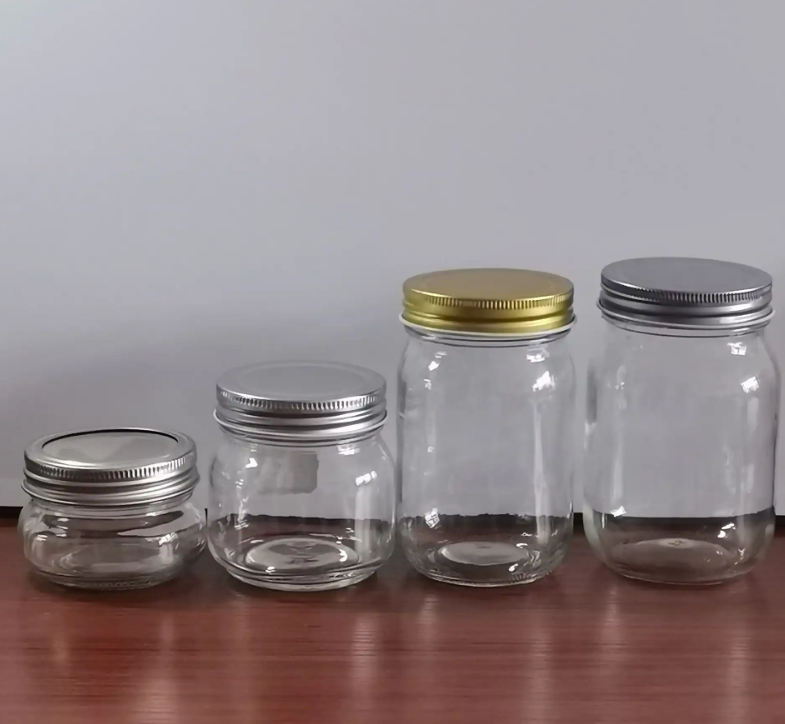What problems might glass bottles encounter during the recycling and reuse process?
Feb 28,2025
Glass bottles are recycled and reused.

Glass bottles may encounter the following issues during the recycling and reuse process:
Collection and classification issues
- Incomplete collection networkSome areas lack a complete glass bottle recycling network, with unreasonable layout or insufficient number of collection points, leading to many glass bottles not being collected in a timely manner. Some residents may discard glass bottles randomly because they cannot find convenient collection points, reducing the recycling rate.
- Mixed recycling difficult to separateIn the actual recycling process, glass bottles are often mixed with other waste, such as plastics, metals, paper, etc. Separating different materials requires a large amount of manpower and resources, and if not thoroughly separated, it will affect the quality of glass recycling.
- Color classification difficultiesGlass bottles come in various colors, such as colorless, green, brown, etc. Different colors of glass usually need to be processed separately during recycling and reuse; otherwise, it will affect the quality of recycled glass, but accurately classifying colors during the recycling process is somewhat difficult.
Cleaning and processing issues
- High cleaning costsGlass bottles usually retain various substances after use, such as food residues, beverage stains, chemicals, etc., and need to be thoroughly cleaned before reuse. The cleaning process requires a large amount of water, detergents, and equipment, increasing recycling costs.
- Difficult to remove residual substancesSome glass bottles may have contained sticky or hard-to-clean substances, such as grease, glue, etc. These residual substances may require special cleaning processes and equipment to be completely removed; otherwise, it will affect the quality of recycled glass.
- Complex handling of broken glassRecycled glass bottles may be broken, and handling broken glass is relatively complex. On one hand, broken glass can easily cause personal injury and equipment damage; on the other hand, broken glass may contain other impurities, requiring more careful sorting and processing.
Reprocessing issues
- Impurities affect qualityAlthough sorting and cleaning have been done during the recycling process, some impurities may still mix into the glass raw materials, such as metal fragments, ceramic particles, etc. These impurities can affect the melting temperature, fluidity, and other properties of glass during reprocessing, leading to quality issues such as bubbles and cracks in recycled glass.
- Color limitationsDue to slight differences in the composition and production processes of different colored glass, if the recycled glass is mixed in color, it is difficult to produce high-quality, colorless glass products, and it can usually only be used to produce products with lower color requirements, limiting its application range.
- High technical and equipment requirementsGlass reprocessing requires high-temperature melting and other processes, which have high technical and equipment requirements. Some small recycling enterprises may lack advanced production equipment and technology, making it difficult to produce high-quality recycled glass products, resulting in ineffective utilization of recycled glass bottles.
- Energy consumption issuesThe melting of glass requires a large amount of energy, and in the case of high energy prices, it increases the cost of recycling and reuse, reducing the economic benefits for enterprises and affecting the enthusiasm for recycling and reuse.
Market and economic issues
- Unstable market demandThe market demand for recycled glass is affected by various factors, such as market changes in the construction and packaging industries. If market demand is insufficient, it will lead to a backlog of recycled glass bottles, making timely reuse impossible.
- High price competition pressureCompared to new glass, recycled glass may have certain disadvantages in cost and quality, facing price competition pressure from new glass and other alternative materials. If the price of recycled glass is too high, it will affect its market competitiveness; if the price is too low, it will affect the profits of recycling enterprises.
- Incomplete industrial chainThe glass bottle recycling and reuse industrial chain involves multiple links such as collection, transportation, processing, and manufacturing. Close cooperation between these links is needed to achieve efficient operation. However, in some areas, the industrial chain is incomplete, with issues such as poor upstream and downstream connections and lack of information flow, affecting the overall efficiency of recycling and reuse.
Contact Us
E-mail :
TomasYan@wzglass.com
Phone/WhatsApp:
+86-0775-6658866
Address:
Min'an Town Daily Ceramic Industrial Park, Beiliu City, Guangxi Province, China

Get in touch
Are you interested in our products or services? Contact us immediately, our experts will provide you with professional services!
*Please leave your specific personal information, and we will have a product consultant contact you later
Address
Min'an Town Daily Ceramic Industrial Park, Beiliu City, Guangxi Province, China






